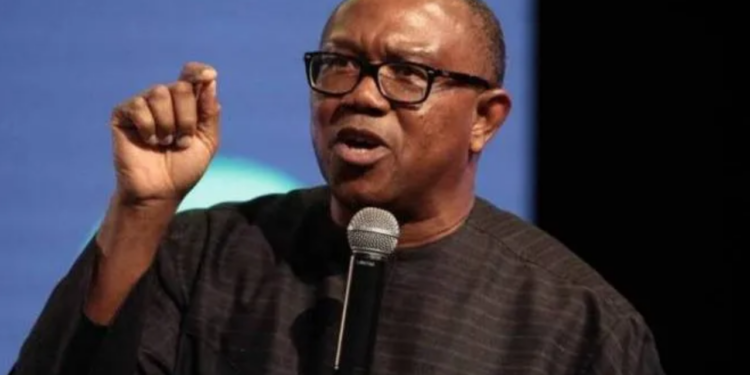The Nigerian political scene is often characterized by regional and ethnic divisions, making it challenging for any candidate to win the presidential election. However, in the 2023 election, Peter Obi emerged as a game changer who defied all odds to make a significant political statement. Although he did not win the election, he won the hearts of many Nigerians who were inspired by his tenacity and patriotism.
Obi began his journey in 2011 and sustained it to an appreciable feat. He gave impetus to the race, demystified age-long permutations, and dislocated many maverick actors who had hitherto played political gods. However, he suffered from the misguided perception that he was solely a religious candidate, which reduced his worth and ultimately led to his third-place finish.
To win the race in Nigeria, one‘s outreach must transcend beyond the fault lines of religion and ethnicity. Chief Awolowo and Buhari in 2003, 2007, and 2011 failed to become Nigeria‘s presidents because they could not ride on national spread. In contrast, when Buhari decided to be a Nigerian candidate in 2015, he won the election. This demonstrates the importance of a broad-based appeal in Nigerian politics.
Unfortunately, Obi‘s accelerating political outing was wrecked by overzealous kingsmen who turned a beautiful brand into an enclave king. They talked down on dissenting voices and used primitive intimidation tactics, which scared away potential supporters. Additionally, the choice of political slogans like „Take it back“ showed desperation and disdain for democracy, which further hurt Obi‘s campaign.
religious leaders also helped to dwindle Obi‘s outing given their overt endorsement of his candidature. So rive was the traces of religion that some clerics came out in the open canvassing for votes for Obi – a development for some people. considered needless given the regularity of Nigeria. Religious politics can lead to the interference of religious leaders in governance, which can affect policymaking and decision-making. When religious leaders become involved in politics, they may push for policies that benefit their religious group at the expense of others, leading to an imbalanced system of governance.
Religious leaders hold significant influence in Nigeria, and it is not uncommon for politicians to seek their endorsement. However, relying too heavily on the endorsement of religious leaders can be a double-edged sword.
On the one hand, endorsements from influential religious leaders can help a candidate gain support from their followers. On the other hand, relying too heavily on religious leaders can alienate voters who may see it as a form of nepotism and prefer a more secular approach to governance.
Additionally, religious leaders may not always have the same political interests as their followers, and their endorsements may not necessarily translate into votes.
Peter Obi‘s relied too heavily on religious leaders, and it eventually harmed his chances in the 2023 presidential elections, especially if he failed to address the pressing issues affecting Nigerians, such as insecurity, corruption, and the economy. While endorsements from religious leaders can be helpful, Peter Obi‘s in ability to strike a balance between seeking their support and addressing the concerns of Nigerians was certainly one of the albatross of his quest to lead Nigerians in the just concluded Nigeria presidential election.
Religious politics in Nigeria can have significant implications for the country and its people. While religion is an essential part of Nigerian society, politicians must be careful not to use it as a tool to gain power or promote their agenda at the expense of others. Instead, they should focus on creating policies that benefit all Nigerians, regardless of their religious affiliation.
Despite these challenges, Obi recreated the spirit of patriotism among Nigerians, especially those who had lost hope in the nation. He made the Nigerian dream a cherished one in the hearts of many, and even the IPOB ideology died a natural death as a result. This is a testament to Obi‘s ingenuity and ability to inspire hope in a seemingly hopeless situation.
In conclusion, while Peter Obi did not win on the ballot, he won the heart of many Nigerians. He defied all odds and made a significant political statement, demonstrating the importance of broad-based appeal and patriotism in Nigerian politics. Obi‘s legacy will be remembered as an inspiration to future generations of Nigerians.
Profoundly musing



